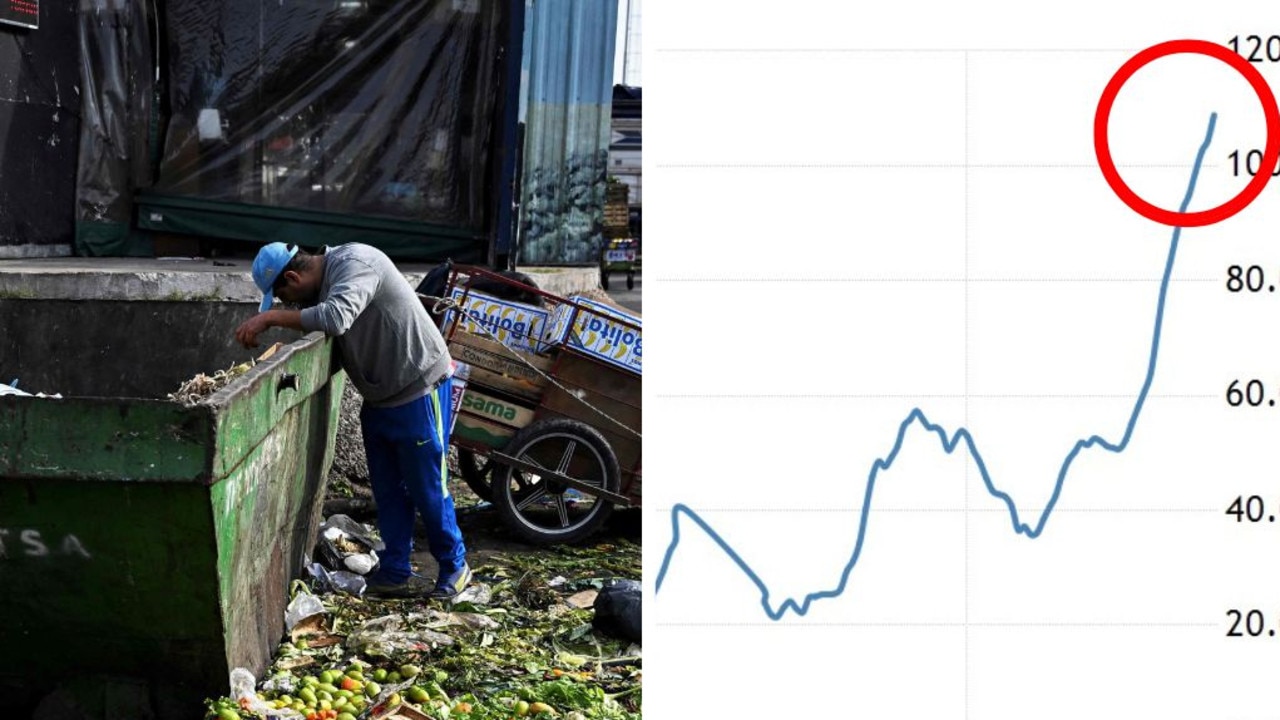[ad_1] Central banks worldwide are grappling with the challenge of curbing inflation, but there’s one nation that is facing a particularly severe cr
[ad_1]
Central banks worldwide are grappling with the challenge of curbing inflation, but there’s one nation that is facing a particularly severe crisis in what is now being dubbed the post-Covid economy.
In an attempt to address its alarming surge in inflation, the Central Bank of Argentina has decided to raise its key interest rate by six percentage points to a whopping 97 per cent.
In the previous month, the country witnessed an annual inflation rate that surpassed 100 per cent.
According to data from the International Monetary Fund, this level of inflation is the highest Argentina has experienced since the early 1990s.
To put things in perspective, Australians are already feeling the crunch with a 7 per cent inflation rate in 2023.
Currently, only Venezuela and Zimbabwe have inflation rates higher than Argentina. By comparison, the United States maintains an inflation rate below 5 per cent, and its central bank has raised key interest rates by five percentage points over a span of 14 months.
The Central Bank of Argentina has expressed its hope that the interest rate hike will encourage investments in the country‘s currency. The excessive inflation has resulted in significant outflows of investments denominated in the Argentine peso, leading to a 23 per cent devaluation against the US dollar in the current year.
Consumers are feeling the heat with supermarket staples skyrocketing by the week.
Meat in particular was hiked by a staggering 20 per cent in just a month after adverse weather conditions, including a prolonged heatwave, wildfires and a historic drought – the worst in 60 years – impacted livestock and crop, according to local news outlet Ambito.
With a presidential election in October, Economy Minister Sergio Massa is focused on preventing further devaluation of the currency and containing inflation.
Massa has been considered a potential third-party candidate since incumbent President Alberto Fernandez announced last month that he will not seek re-election.
However, analysts remain sceptical that the recent rate hike will produce any significant changes in the Argentinian markets.
“The feeling is that the government is completely losing it against inflation,” former deputy manager at the Central Bank of Argentina, Miguel Kiguel, told CNN.
“I fear the government has started to act very late: interest rate hikes are of course the main strategy to combat inflation, but they take time.
“When a central bank raises the interest rate, the effects are felt some two or three months afterwards, and that timescale is not effective in Argentina’s situation.”
Many Argentines see converting their pesos to US currency as their only defense against the ravages of inflation.
“Economic conditions are deteriorating rapidly and will continue as the electoral process approaches,” said Daniel Kerner, managing director for Latin America at the Eurasia Group, last week.
“Reserves are at a critical level, with a severe drought hurting export revenues.” The drought has badly affected the agricultural sector, which is vital for the country’s ability to source foreign currencies.
Since the start of the year, Argentina has lost more than $5.5 billion in international reserves, which have dropped to $33.5 billion, according to the central bank.
Argentina is one of the largest producers of food in the region but sources from the economy ministry told the Telam news agency that the country would be forced to turn to food imports “to reduce the effective price of the public sale of fresh produce … and non-perishable dry goods in order to defend people’s consumer power.”
[ad_2]
Source link



COMMENTS